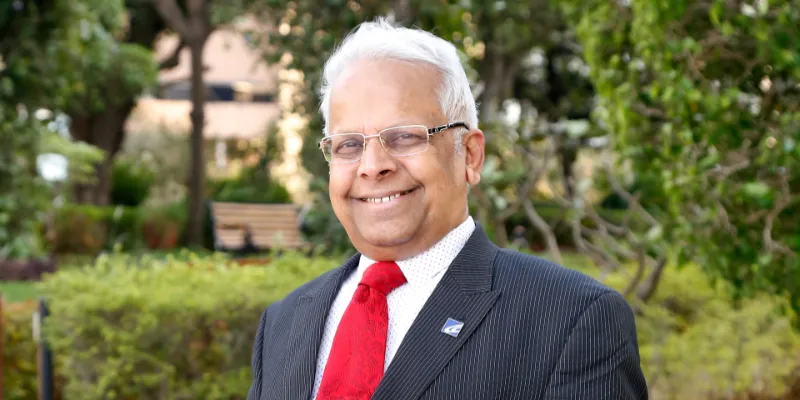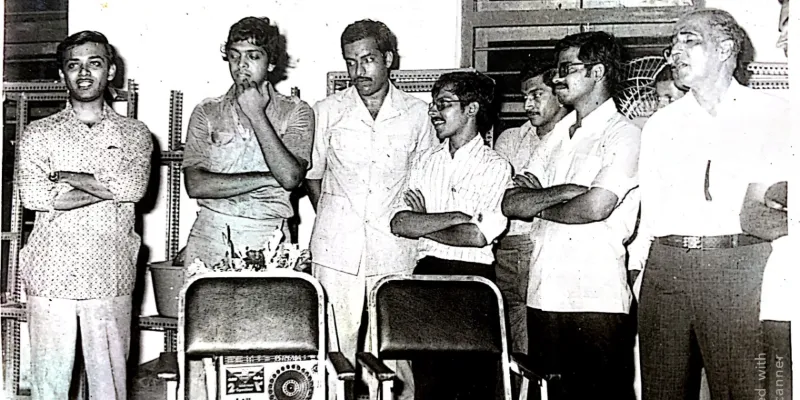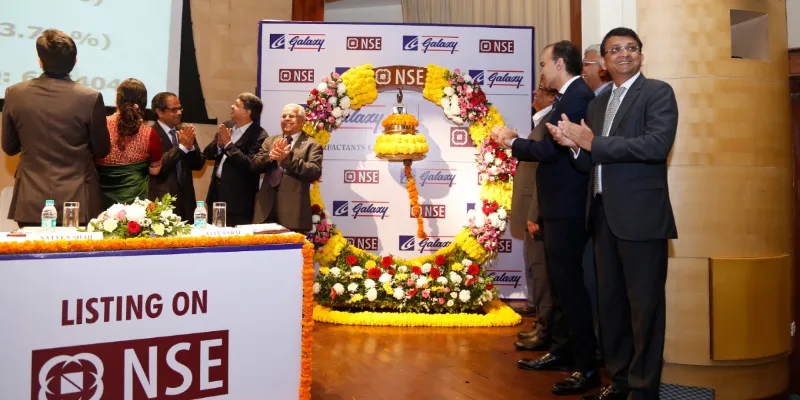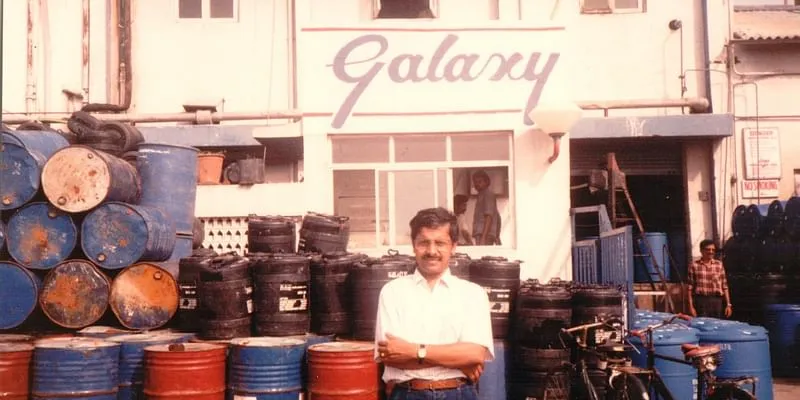Started by five friends in the 80s, this Mumbai-based surfactant company now clocks Rs 2,563 crore annual turnover
Galaxy Surfactants manufactures chemicals for cleaning and personal care space, exporting to over 80 countries. Its clients include L’ORÉAL, Dabur, Himalaya, Colgate-Palmolive, Unilever, and more.
According to Industry Arc, between 2019 and 2025, India’s surfactants market is expected to grow at a CAGR of 5.38 percent. Surfactants are special chemicals that are used in household, industrial, and institutional cleaning, as well as in personal care space. These chemicals form an important ingredient in shampoos, face wash, soaps, detergents, emulsifiers, etc.
Globally, companies like BASF SE (Germany), The Dow Chemical Company (USA), Clariant (Switzerland), and Lion Speciality Chemicals Co. (Japan), among others, dominate the surfactant space. In India, Mumbai-based has carved a niche in this industry.
Galaxy Surfactants was founded by five friends — U Shekhar, Geera Ramakrishnan, Shashi Shanbhag, CR Ramakrishna, and Sudhir Patil — all hailing from different professions.
At present, U Shekhar runs the business solely after the death of two co-founders (CR Ramakrishna and Sudhir Patil) and the exit of two others (Geera Ramakrishnan and Shashi Shanbhag).
The company manufactures a wide range of speciality chemicals, including surfactants, mild surfactants, rheology modifiers, pearling agents, conditioning agents, and blends based on innovative concepts, proteins, Quats for the personal care industry.
It boasts of an impressive clientele, including CavinKare, Colgate-Palmolive (India), Dabur India, Henkel, Himalaya, L’ORÉAL, Procter & Gamble, Reckitt Benckiser, Ayur Herbals (Private), Jyothy Laboratories, Unilever, and more.
In FY20, the company clocked a turnover of Rs 2,563 crore. It is also listed on the National Stock Exchange (NSE).
In a conversation with SMBStory, U Shekhar, Managing Director, speaks about the growth and evolution of Galaxy Surfactants over the years and explains how the country can become Aatmanirbhar in the manufacturing sector.

U Shekhar, Managing Director, Galaxy Surfactants
Edited excerpts from the interview:
SMBStory [SMBS]: How did five friends from diverse backgrounds come together to launch a surfactants manufacturing business?
U Shekhar [US]: The company was launched by me and my four friends — Geera Ramakrishnan, Shashi Shanbhag, CR Ramakrishna, and Sudhir Patil — who came together by coincidence. Each one was pursuing different paths in life such as chemical engineering, pharmacy, accountancy, etc. But, we were all bitten by the entrepreneurial bug and had the desire to be independent. We wanted to create something of significance, but we didn't know what.
Hailing from middle-class families, the only capital we had was our education. So we used to meet over several cups of tea and brainstorm ideas. We soon realised that it would be right for us to enter the manufacturing sector.
At the time, Geera Ramakrishnan used to work with Colgate-Palmolive, and we both went to meet the company’s manufacturing head. We asked him if we could do something to meet the needs of Colgate, to which he replied, asking, “Why don't you manufacture Sodium Laureth Sulphate (SLES) TLS?” I didn't know what that was so I just said “Yes.”
He told us that manufacturing SLES TLS — a chemical used in making shampoos — doesn't need much of an investment.
As a chemical engineer, I knew a little bit about this space. So I read several books, got the required raw materials from local sources, and started manufacturing the chemical in my friend’s lab in Ghatkopar, Mumbai.
Soon, Colgate gave us a nod to our product. With bank loans and personal investment of Rs 20,000 by each one, we started Galaxy Surfactants in 1980.

Co-founders of Galaxy Surfactants- (L-R) C.R. Ramakrishna, Shashikant Shanbhag, U Shekhar, G. Ramakrishnan and Sudhir Patil
[SMBS]: How many manufacturing units does the company own? What is your overall operating capacity?
[US]: We have five factories in Taloja (Maharashtra), Tarapur (Maharashtra), Jhagadia (Gujarat), the US, and Egypt. In 1980, our manufacturing capacity was 30 metric tons. Today, it is 400,000 tonnes, and we manufacture over 205 products with 1,750 customers in India and abroad, and export to over 80 countries.
[SMBS]: How was the entrepreneurial ecosystem in the 80s? What kept you going all these years?
[US]: The 80s decade was a time of shortage — from finance to raw materials. Banks used to lend at an interest rate of about 18-19 percent. The government had made it difficult to import raw materials with strict regulations. The excise duties used to be 117.5 percent for shampoos because shampoos and other such personal goods were regarded as luxuries, which were not meant for the poor Indian population.
However, the personal home care industry — which poised a lot of scopes — kept us going. It was an industry which valued quality and service. And then the liberalisation happened in 1991, a watershed year for the country when the economic reforms were introduced.
We have survived the tough times by staying focussed on serving customers well, constantly innovating, and also establishing international competence.

On the day of its listing on National Stock Exchange (NSE)
[SMBS]: In which year did you go global? How did having global operations helped you establish a sustainable business model?
[US]: We set up a global capacity in 1997. Later, we even invested Rs 500 crore in setting up new greenfield projects in Jhagadia and Egypt, which brought us closer to customers in Africa, the Middle East, and Turkey. We established Galaxy as an Indian MNC with global scale.
In fact, acquiring a speciality proteins division in the US and developing its new speciality molecules basket, comprising mild surfactants, sunscreens, non-toxic preservatives, synthetic and transparent bathing bars, helped us scale in the next decade of growth (2010-20).
Two-thirds of our business comes from international customers. Going global is also important to establish a sustainable business. However, you have to be very competitive.
One of the important elements of global competitiveness is scale. Factories which we set up abroad have double the capacity of the Indian units. This helps us in meeting our global demand.
Speed is another factor. Establishing global supply chains while also sustainably running the operations are also a few things that have helped us survive the competition.
For example, Galaxy has been a zero discharge company for the last five years. We treat all our effluence inside the factory and even recycle water.
[SMBS]: How have you innovated over the years?
[US]: Innovation is paramount if you want to stay in the business for the long term. Our business has grown with our customers.
Over the years, I have realised that you need to be in sync with consumer trends. You need to have the ability to create products that are in line with consumer needs and trends and create these products consistently with international quality systems.
People, over the years, have become very particular about hygiene and wellness. Consumers demanding shampoos that are safe and have fewer chemicals pushed us to come up with mild surfactants, made up of amino acids. These products are created by using green raw materials.
We also came up with a range of non-toxic preservatives to keep the quality of shampoos, face wash, and other products clean, consistent, and fragrant.

U Shekhar in the early days of business
[SMBS]: How did COVID-19 impact your business? What are your plans in the coming years?
[US]: COVID-19 has heightened the need for safe and hygienic products. Fortunately, for us, the demand for cleaning products has increased. However, the disruption of supply chains all over the world has restricted our ability to respond to customers.
We will continue to develop our portfolio of products, especially the green preservatives and mild surfactants categories. Going forward, we will also focus more on developing markets, Tier II and III companies and multinational companies (MNCs).
Edited by Suman Singh










